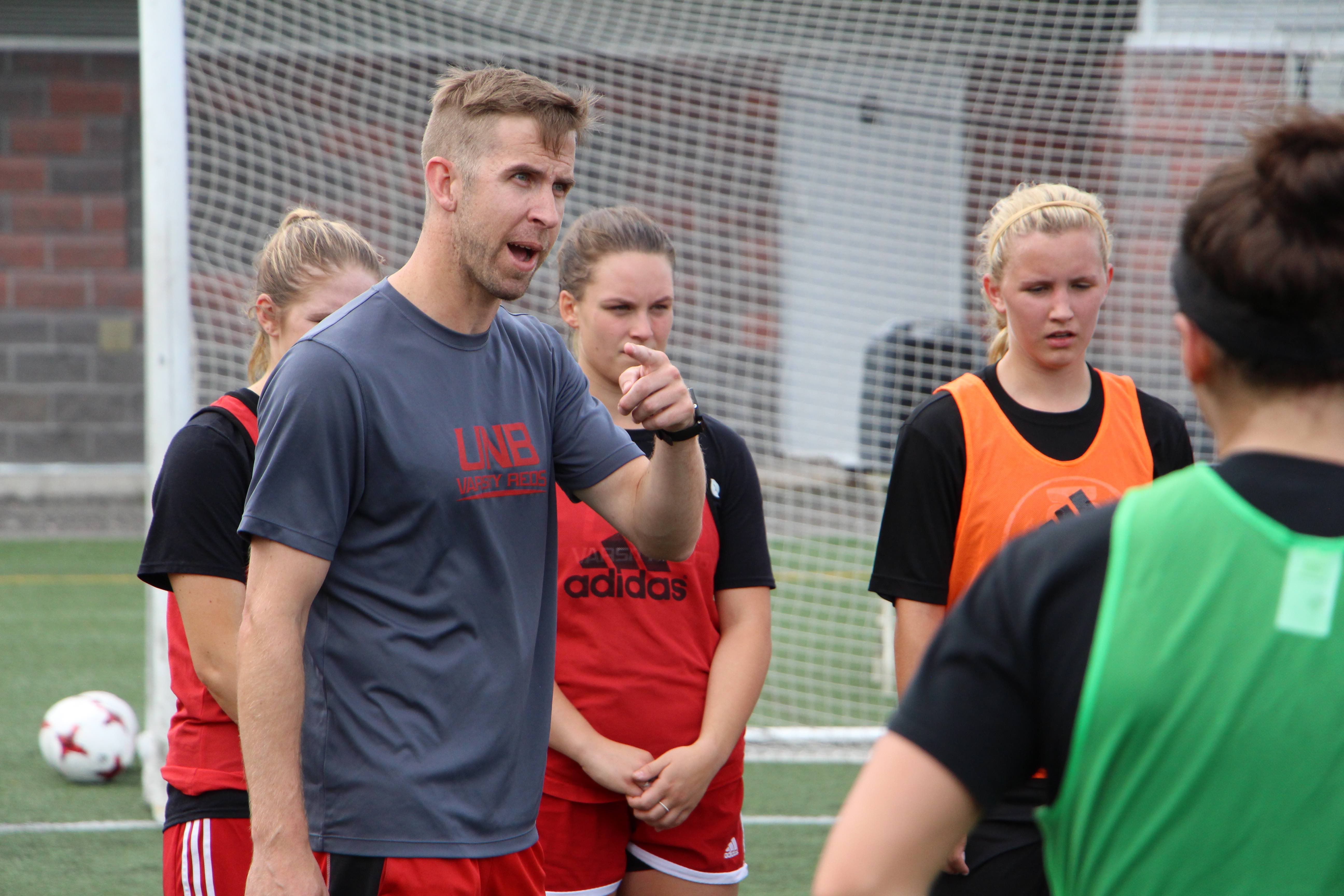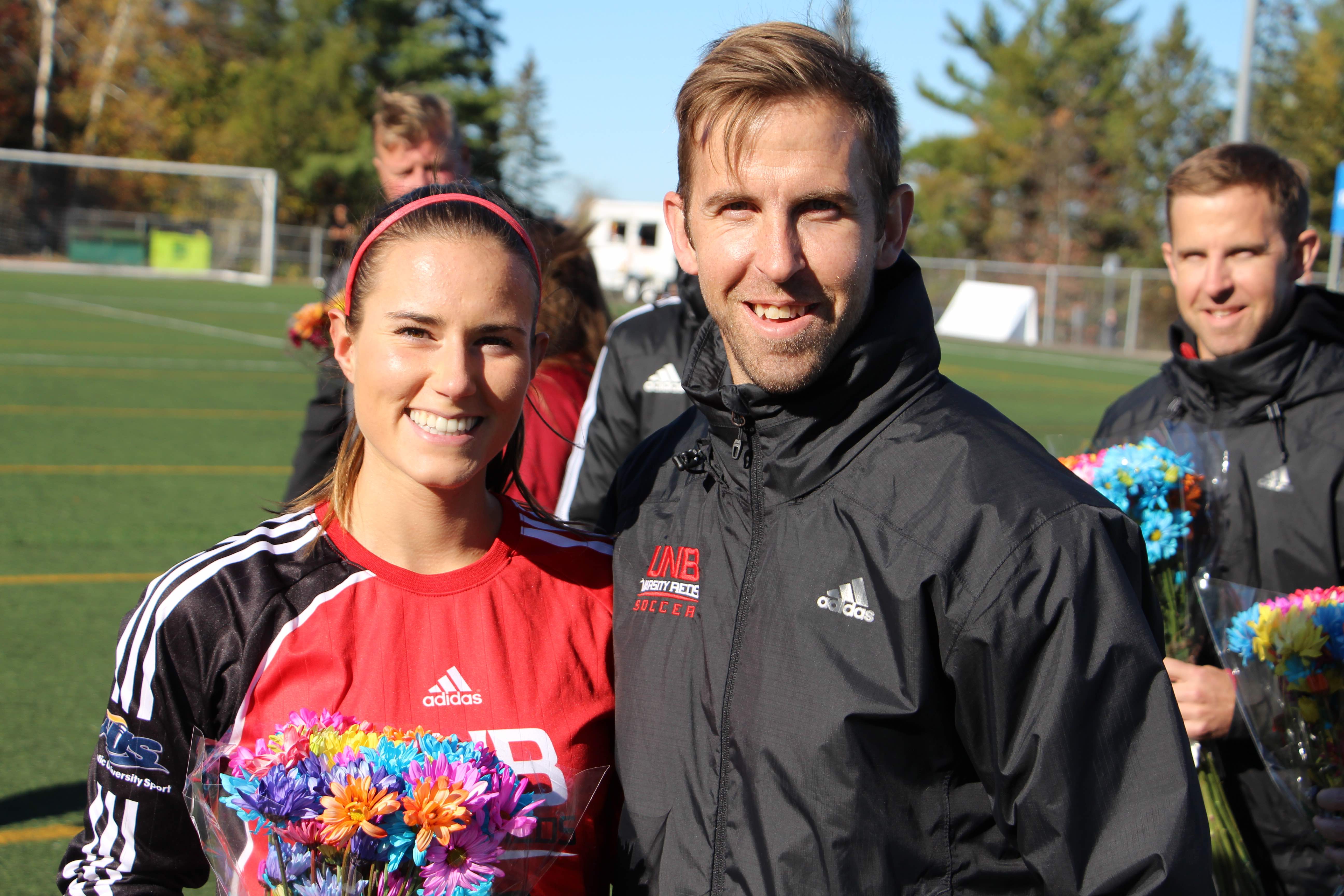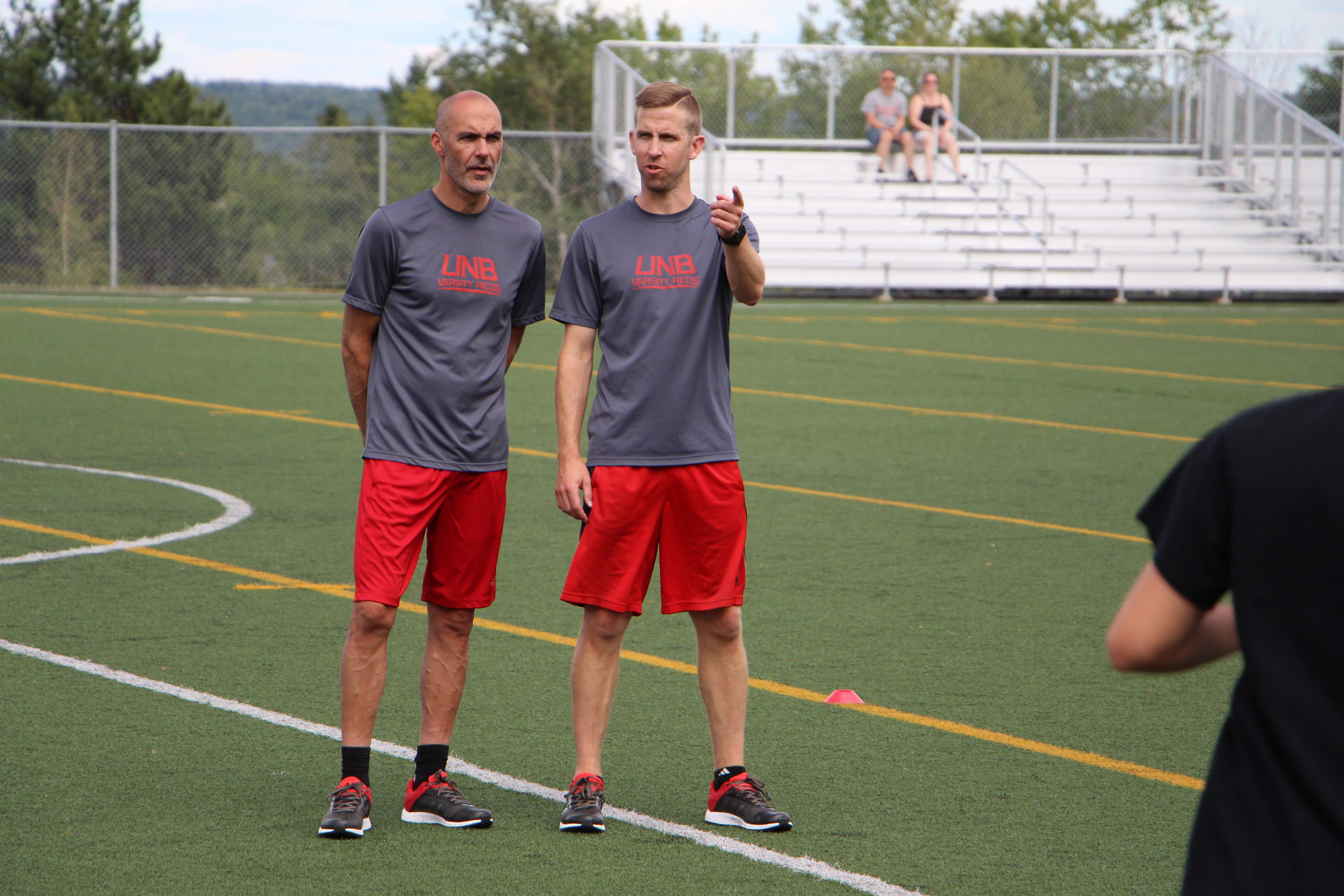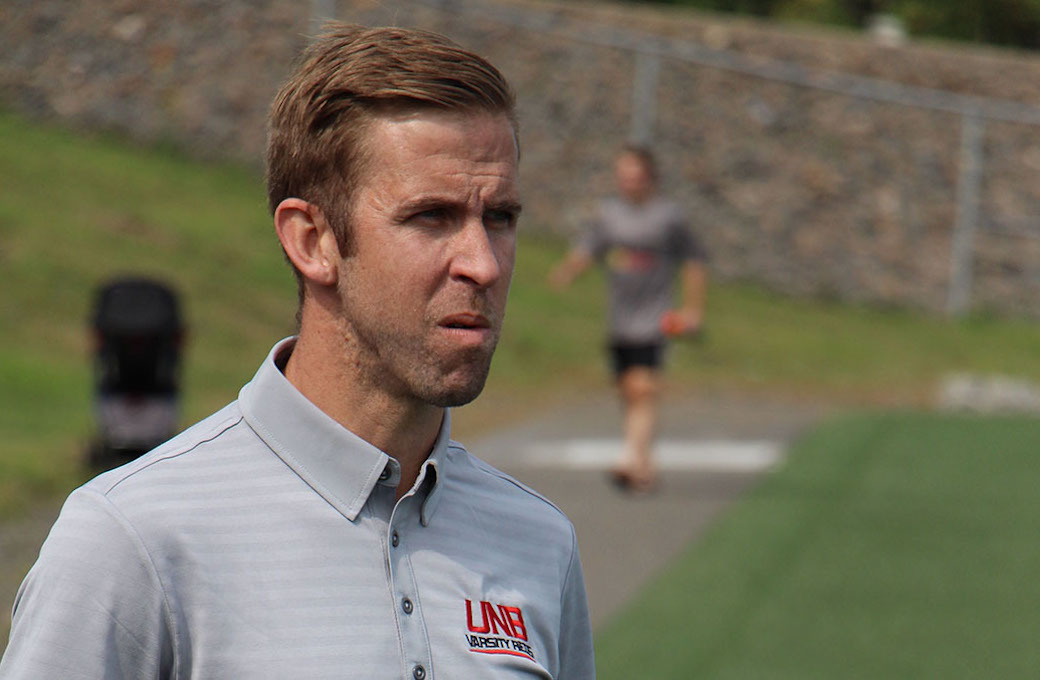Women’s Soccer
U SPORTS sits down with one key athlete, coach, and staff member of each U SPORTS athletic program in our new interview series “Getting to know…”

- Name: Jonathan Crossland
- School: University of New Brunswick
- Sport: Women’s soccer
- Position: Head coach
- Seniority: Six years
- Previous school/position: Elementary P.E. Teacher / Assistant coach UNB men's soccer
- Hometown: Bridgewater, N.S.
1. How did you first get involved in coaching? What was your path to your position as head coach of the Varsity Reds?
I grew up in a small community and had the chance to be involved in coaching when I was a teenager with mini soccer, recreation department soccer, and club soccer. As my friends and teammates got older, we started a senior team and that is when I got more into the coaching/admin pieces of things and never really stopped.
While I was UNB as a student, I got into regional development programs which led into provincial team coaching with Soccer New Brunswick. After my playing career was done at UNB, Miles Pinsent (current men’s coach) asked me to come on board to help with the men’s program, which I did for seven years. Throughout that time with the men’s team, I continued both my coaching education and academic education as university jobs had requirements for both. Then, the women’s position at UNB came up in the spring of 2012. I felt with my connections to the university, experience in seeing and being a part of Miles’ building a program, that I could bring that same pride and passion to our women’s program. It worked out, and here I am six years later. I’ve been paid to play games my whole life!

2. Who are the people that have influenced you most as a coach?
My parents. I can never remember a car ride home where they critiqued my play. If there was an effort or attitude piece, that was discussed. My Dad is not a big talker, but he has worked for himself for 35 years as a mechanic. His shop was next door to our house, and it gave us (twin brother and assistant coach Joe) an opportunity to see that you need to take pride in your work, do it right and treat people fairly. We worked there in the summers and when it was closing time, there was always a sense of doing a “day's work” when you were washing grease off your hands.
A lot of my early coaching experiences were with leaders that built programs, Matt Wright in my community soccer program, Tammy Gaudet in our school track and field, Miles here at UNB. They were builders that were selfless with their time and dedication to grow their sports. They were also dedicated to the people. I reflect back, and there are so many life lessons through sport from each of them, that continue to stick with me to this day.
Chris Treadwell was a principal I worked with at my first teaching job. Chris opened my eyes and mind to having a big vision, building a team that wants to do great things, and building capacity in each of those people to lead in their own way. I always feel he saw the "what can be" in people way before they thought about it themselves. Chris really taught me what leadership was.
3. How would you describe your coaching style?
People first. No one in your program wants to do poorly in soccer, school or life. University is the best time of your life, but also a challenging time as people transition to a young adult. Pete Carroll had a quote that has always stuck with me: “It comes down to taking care of the people in your program and making them the best they can be, not giving up on them and never failing to be there for them.”
4. Which coach do you admire the most, and why?
I had the chance to be a multi-sport athlete growing up, so I had many different coaches over those years in many different sports. They all influenced me, some for good and some for bad!
In terms of success, we have one of the best here at UNB with Coach Mac (Gardiner MacDougall). He attracts great players but watching those guys practice is special. They have great Fridays and Saturdays because their Monday-to-Thursday is so well done. They can carry the level of preparation, tempo and compete right into their weekend because that’s how they have trained.
I find myself drawn to leaders, not just coaches, that have a vision, manage people and situations well, and maximize positive impact.
5. What is the most “out-of-the-box” thing you’ve done as a coach?
Good question. A few years back, we opened training camp at 5:00 a.m. We wanted to be the first to work and carry that mindset through the year.
This year before our AUS quarter-final, we had our parents each write a letter to their daughter. We slid them under their doors for when they woke up on game day. It was pretty nice to see them all at breakfast after reading their letters.
6. What is your greatest coaching moment or achievement?
Results-wise, finishing first in the league in 2014, being ranked in the Top 10 and making the AUS final. Those are two things that had never happened before in our program up to that point.
Personally, watching kids figure it out, succeed, move on and do well with “what’s next” in their life.

7. What’s the best advice you can give to an athlete and/or athlete’s parents?
My advice is to let the athlete learn on their own and be independent. Be a guide for your child through the ups and downs, do not solve the problems for them with teammates, coaches, friends, etc. Quite often, the student-athletes that are most successful are the ones that can recognize how everything works together in balance, and that comes from experiences, good and bad.
8. How have you changed as a coach, over time? What principles/values, etc. have remained the same?
Experience is a great teacher. I think the biggest change is the confidence to handle situations on or off the field. I’ve had situations that no coaching course prepares you for, but those are when the values become important.
My values are our team values. I need to be the most committed to doing things right and setting the example.
Players want consistency, not only in coaching and relationships but in mindset and personality. They don’t want to guess which coach is showing up today.
Accountability. Be fair and handle each situation as it comes. No two situations can be handled the same.
Impact. There are times in this job when you are a life coach, guidance counselor, relationship coach, or giver of perspective. Obviously, in the moment, you want this to benefit your team, but you always hope for a long-term impact as well.
9. What do you enjoy doing when you’re not in coaching mode?
Family time with my wife Erin and two children (Hadley, 5 and Campbell, 2). Not in coaching mode means time with them at dance, gymnastics, swimming, etc.
I like to golf in the summer and play hockey in the winter. I still try to get around the field playing soccer as well!

10. What’s the most embarrassing thing that’s ever happened to you as a coach?
My first year coaching, we were doing some video/tactics off the iPad. My wife and I had a shared calendar and on that particular night, she had a bachelorette/wedding shower for a friend. I’m in a room full of 24 young women and “Joan’s Naughty & Nice Party” reminder pops up. I couldn’t hit the dismiss button fast enough.
The players will tell you… there was also a granola bar throwing incident. I was having a snack on the bench when something happened I didn’t like. I threw my granola bar behind me, hit my assistant coach with it, then picked it back up and kept eating it as if no one saw it happen. Everyone did. It has been consistently replayed over the years.

